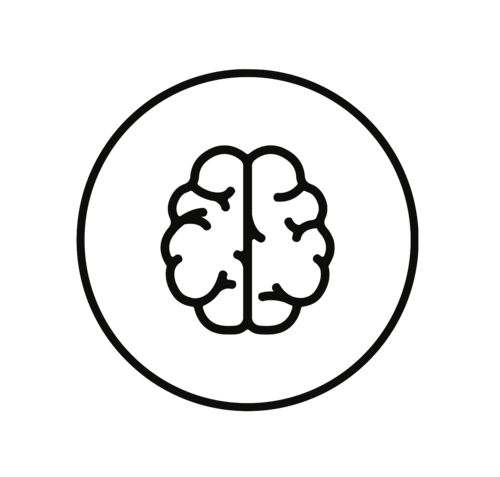Neuropsychological Assessments
Neuropsychological assessments can provide valuable insights into your child's cognitive abilities and challenges. Our assessment process is designed to provide a comprehensive understanding of your child (e.g., cognitive, academic, attentional, behavioral, and adaptive). It includes a review of their medical history, detailed behavioral observations, a variety of tests to identify their neuropsychological strengths and weaknesses, and input from those who are familiar with your child's functioning. This information is used to create a comprehensive profile of your child's abilities and needs in order to help outline criteria for specific interventions, accommodations, and educational planning.
What Is a Neuropsychological Evaluation?
A neuropsychological evaluation is a comprehensive assessment of your child’s cognitive, academic, emotional, and social functioning. The purpose of the evaluation is to understand how your child learns, thinks, processes information, and responds to the world around them. The process helps identify both strengths and areas where support may be beneficial.
In many cases, an evaluation also helps determine whether a formal diagnosis is appropriate, which can assist in qualifying your child for services or accommodations. However, a diagnosis is not required in order to support your child effectively. Our goal is always to provide an integrated picture of your child’s profile—one that is understandable, actionable, and empowering.
What Does the Evaluation Include?
All evaluations are individually tailored to your child and may include assessments in the following areas:
Cognitive abilities (sometimes referred to as “IQ testing”)
Academic achievement (e.g., reading, writing, math)
Learning style and processing strengths
Attention and focus (including screening for ADHD with cognitive and behavioral measures)
Memory skills (e.g., short-term, long-term, and working memory)
Executive functioning (e.g., planning, organization, judgment, inhibition)
Visual and auditory processing
Emotional and social functioning (including mood, personality, and pragmatic communication)
Motor coordination and sensorimotor integration
Our approach goes beyond scores, where we integrate observations, background history, and real-world implications to understand your child as a whole.
The Evaluation Process
Initial Parent Interview: At some point during the evaluation, Dr. Darrell will meet with parents for a 60-minute developmental interview to gather comprehensive background information, including developmental milestones, family history, academic experiences, and social-emotional development.
Testing Sessions with Your Child: Testing is conducted across several sessions, typically ranging from 1.5 to 4 hours each. Children often find these sessions enjoyable, as many of the tasks are interactive and designed to feel like games or puzzles. Breaks, snacks, and flexible pacing are built into the schedule to support attention and comfort. Parents do not typically join testing sessions but are welcome to wait nearby. If your child is comfortable, you may also leave and return at the end of the session.
Feedback Session: Once testing is complete, we hold a 90–120 minute feedback session with parents. We review your child’s profile, discuss diagnostic impressions (if applicable), and present a detailed roadmap for home and school-based support.
Written Report: You will receive a clearly written, user-friendly report that includes all test results, interpretive discussion, and specific, individualized recommendations. We also provide a school summary version if needed.
School Meeting (Optional): Included in the testing is a feedback meeting with your child’s school team. These meetings help bridge communication and ensure recommendations are implemented effectively.
For more information or to schedule a free initial consultation with Dr. Darrell, please click on the link below. We are happy to answer questions and guide you through the next steps.
-
Confidentiality
Confidentiality
All information shared during the evaluation is strictly confidential. We do not release reports to schools or outside professionals without your written consent. If you feel uncomfortable sharing the full report, we can provide an abbreviated version focused on school-relevant findings. -
Payment and Insurance
Payment. The full testing fee is due during the first testing session. A detailed statement (superbill) will be provided upon request at the conclusion of the evaluation for your insurance records. Please note that this office does not bill insurance companies directly. Families are responsible for submitting documentation and managing any reimbursement they may be eligible to receive. Referrals for insurance advocates or billing specialists may be provided upon request to assist with this process.
Insurance Reimbursement. This office is not in-network with any insurance panels. This allows for the highest quality of care without limitations imposed by insurance carriers. Our priority is your child and your family—not the policies of insurance companies. Please check with your provider in advance to determine reimbursement eligibility. Commonly used CPT codes for neuropsychological services include: 90791, 96136, 96137, 96132, 96133, and 96116, though other codes may apply depending on the scope of services. Reimbursement is not guaranteed and often depends on your plan’s policies and your child’s diagnosis.



